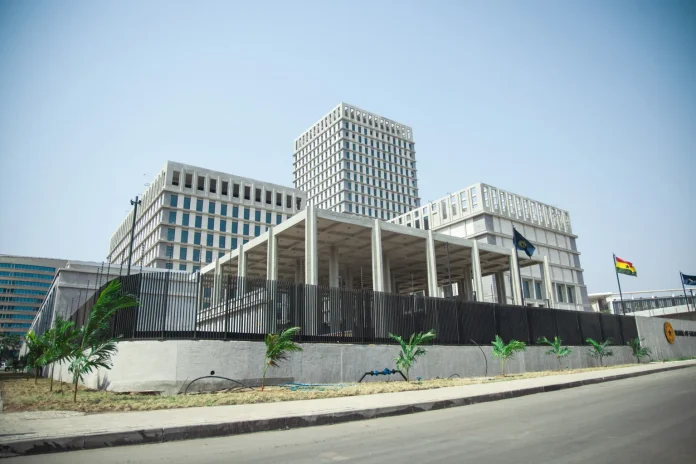
The Bank of Ghana (BoG) has announced a new set of prudential and supervisory directives for the banking sector as part of measures to strengthen financial stability and sustain the country’s recent macroeconomic gains.
Governor Dr. Johnson Pandit Asiama, addressing chief executives of banks at a post-Monetary Policy Committee (MPC) engagement in Accra on Tuesday, said the new regulatory framework aims to align Ghana’s banking supervision with international best practice while ensuring the sector remains resilient as monetary policy shifts toward supporting growth.
The new measures include directives on Bancassurance, Large Exposures and Credit Concentration Risk Management. In coming months, the central bank will also issue exposure drafts covering Liquidity Risk Management, Interest Rate Risk in the Banking Book, Stress Testing and Recovery Planning. These policies, Dr. Asiama explained, are designed to deepen prudential oversight and enhance risk management practices across the industry.
He added that the transition period for compliance with the Outsourcing Directive has been extended to end-December 2025 following consultations with the Ghana Association of Bankers, but cautioned that this would be the final extension. “Banks must ensure full compliance thereafter,” he said, stressing that the directive is critical to operational efficiency and governance standards.
The Outsourcing Directive sets out conditions under which banks may delegate key functions such as IT services, call centers or data processing to third-party providers. It requires institutions to assess and manage the risks associated with outsourcing while maintaining full responsibility for compliance, data protection and business continuity. The framework aims to prevent operational disruptions and strengthen regulatory oversight of outsourced services.
This renewed regulatory drive comes as the economy continues to improve following years of fiscal and price instability. Headline inflation fell to 9.4% in September, marking the first single-digit print in four years and the ninth consecutive monthly decline. Asiama said this disinflation trend reflects the impact of consistent monetary policy, prudent liquidity management and fiscal consolidation.
Economic growth has also gathered momentum, with GDP expanding 6.3% in the second quarter and non-oil GDP rising 7.8%, supported by strong activity in the services and agricultural sectors. The composite index of economic activity increased 6.1% in July, signaling continued expansion in demand and production.
Externally, the country recorded a $6.2 billion trade surplus in the first eight months of 2025, while international reserves rose to $10.7 billion, equivalent to 4.5 months of import cover. The cedi has appreciated 21% year-to-date, placing it among the best performing currencies globally.
“This performance underscores the growing credibility of our policy framework and renewed confidence of the markets,” Asiama said.
The MPC recently cut its policy rate by 350 basis points to 21.5%, its third reduction this year, reflecting optimism that inflation will remain within the medium-term target band of 8% ±2% by end-2025. The rate cuts are already filtering through the financial system, with Treasury bill rates falling to 10.3% from 13.4% and average lending rates easing to 24.2% from 26.6%.
Asiama praised the banking sector’s resilience, noting that the capital adequacy ratio has risen to 17.7% while non-performing loans have declined to 20.8%. He however urged banks to remain vigilant and adhere to regulatory provisions.
He encouraged banks to increase lending for productive sectors, especially SMEs and agribusinesses, promote export-oriented financial products and support local insurance coverage for imports to reduce foreign exchange leakages.
Governor Asiama also disclosed that the central bank has met with the Ghana Stock Exchange and that “a couple of banks” have expressed interest in public listings to enhance transparency and long-term capital strength.
“The return to single-digit inflation marks a new chapter in our recovery, but it is not the end of the story,” Asiama said. “Our collective responsibility now is to sustain this discipline and ensure that stability translates into jobs, affordable credit and real growth for households and businesses.”
There’s substance behind the governor’s optimism. Ghana’s turnaround from crisis to relative stability has been remarkable, but maintaining momentum requires the structural reforms these new directives represent. The test will be whether banks embrace the heightened oversight as necessary discipline or view it as regulatory burden.
For consumers and businesses, stronger banking oversight should translate into a more stable financial system, though the benefits may not be immediately visible. What matters most is whether the combination of lower interest rates, improved bank health, and stricter regulation creates the conditions for broader economic expansion that reaches beyond Accra’s financial district.
